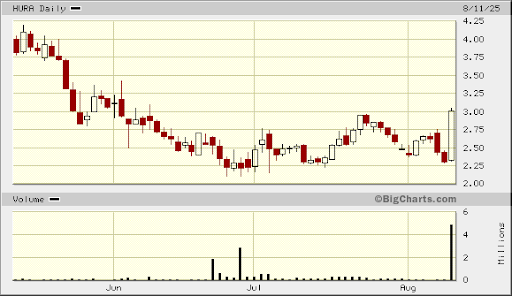Nancy Pelosi’s Stock Market Mastery: A Power Play Unveiled
Nancy Pelosi, former U.S. House Speaker, still dominates headlines with her jaw-dropping stock market wins. No longer trading herself, her husband Paul Pelosi’s portfolio carries the torch, raking in returns that dwarf the market. With a 70% gain in 2024—outpacing the S&P 500’s 24.9%—she’s dubbed the “Queen of Stonks,” igniting debates over congressional trading edges.
Pelosi’s playbook? Tech and biotech bets, high-risk, high-reward plays that pay off big. Unusual Whales, the X go-to for tracking Capitol Hill trades, flags her moves as market goldmines, sparking a frenzy among retail investors. Her critics cry foul, but her track record speaks: from near-zero wealth in 1987 to a $240 million net worth by 2025—a staggering $230 million surge since 2008, fueled by Apple, Microsoft, and Nvidia spikes.
New Battlebot Enters the Ring
Enter Representative Laurel Lee, shaking things up with a bold move. On August 9, 2025, she filed a purchase of up to $100,000 in Tuhura Biosciences (HURA), the lone congressional player in this stock.
HURA, a Florida-based biotech with a $135 million market cap, jumped 35% on the news, proving Lee’s sway. Sitting on the House Committee on Administration—overseeing elections, operations, and transparency—her insight into regulatory shifts might hint at her HURA bet.
Post-merger with Kintara Therapeutics in October 2024, she’s likely banking on its growth potential, though the exact reasoning remains speculative.
So, why HURA? Tuhura Biosciences is a Phase 3 immuno-oncology company laser-focused on cracking cancer immunotherapy resistance—both primary and acquired, the twin killers that tank most treatments. Their lead contender, IFx-2.0, is an innate immune agonist injected intratumorally to flip tumor cells into immune targets, sparking a systemic anti-tumor response.
Paired with Keytruda® (pembrolizumab), it targets advanced or metastatic Merkel Cell Carcinoma (MCC), a rare but aggressive skin cancer. The Phase 3 trial, which kicked off June 24, 2025, under a Special Protocol Assessment (SPA) with the FDA, boasts a primary endpoint of Overall Response Rate (ORR) for accelerated approval, with Progression Free Survival (PFS) as a key secondary endpoint that could clinch full approval. With 118 patients across 22-25 U.S. sites, results could land within 18 months, potentially unlocking a game-changer by mid-2027 if successful.
Approval odds? Promising. IFx-2.0’s Phase 1b trial nailed a 63% ORR in MCC patients resistant to prior checkpoint inhibitors, with responses lasting up to 33 months. The FDA’s recent lift of a manufacturing-related partial clinical hold on June 9, 2025, greenlights full trial momentum, and a $2.23 million PIPE financing tranche signals investor confidence.
Beyond IFx-2.0, Tuhura’s eyeing a Phase 2 trial for a VISTA-inhibiting antibody (post-Kineta merger) in NPM1-mutated AML, plus early-stage tumor microenvironment modulators targeting Myeloid Derived Suppressor Cells (MDSCs).
No drugs are imminently approved, but the Phase 3 trial’s accelerated pathway keeps HURA on the FDA’s radar for a potential 2027 nod.
Owning HURA could be a smart play. Its pipeline tackles unmet needs—MCC affects 3,300 U.S. cases annually, with half non-responsive to first-line treatments, while AML’s 20,000 yearly cases include a third with NPM1 mutations ripe for VISTA targeting.
The stock’s volatility (down 40% over three months) reflects biotech risk, but Lee’s buy and the Phase 3 kickoff suggest upside. With $31 million in recent financing funding operations into late 2025, Tuhura’s cash runway supports near-term milestones. A successful IFx-2.0 approval could skyrocket its value, given MCC’s orphan drug potential and Keytruda synergy. Plus, the Kineta merger could add a VISTA win, diversifying the portfolio.
Risks? Biotech’s a rollercoaster—clinical failures, regulatory hurdles, or dilution from future raises could sting. Yet, the SPA agreement and Project FrontRunner backing signal FDA buy-in, while Tuhura’s 40+ patents lock in IP strength. HURA’s small cap status ($158 million market cap) means explosive growth potential if trials hit, mirroring Pelosi’s knack for spotting winners.

Take a flyer on HURA with the idea that Lee knows something. But wait for the pullback, I’m a buyer around $2.85 a share.
All the best,
Christian DeHaemer
P.S. Check out our new video where Brit and I argue over who has the best chart

